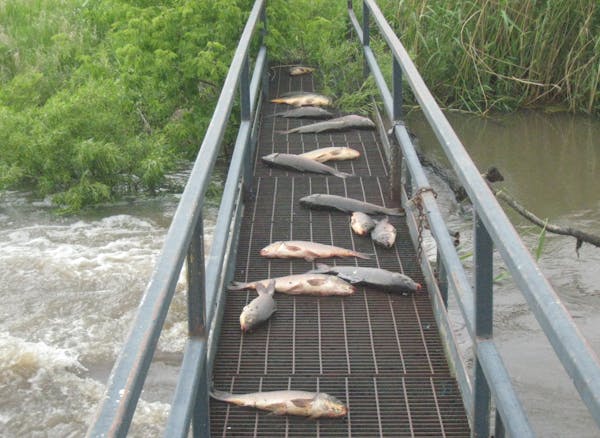Picturing toasty fall fires, Mary Lou Jennings called a wood supplier near her Hermantown, Minn., home and got this message: "At this time we are taking no new orders. … Currently we are out of semi-seasoned oak firewood. … We appreciate your patience." Her call to a second company was never returned.
So last weekend, Jennings had her firewood trucked in from Stillwater, 150 miles away.
It's a choice more northern Minnesota homeowners are making after last winter's propane prices and this year's wet weather dried up the area's supply of seasoned firewood.
"It's been a perfect storm of a year," said Patty Thielen, northeast regional forest manager for the Minnesota Department of Natural Resources.
First, there was "the very difficult, deep snow" during the winter, she said, when much of the harvesting happens. Then a soggy spring and summer kept loggers out of the woods.
The scarcity of wood has also pinched paper and saw mills. Inventories are "a lot shorter than folks would like," said Wayne Brandt, executive vice president of the Minnesota Timber Producers Association. "And now we're heading into the fall rainy period.
"For now, we're OK — but only OK."
The wet summer "prevented us from logging on many sites that historically we would have been able to," Brandt said. When it's very wet, "soils can be damaged," he explained. "We don't do that."
The mills' shortages have affected the availability of firewood. Loggers who might have sold some of their haul to homeowners are now bringing everything they've got to mills that pay higher prices, some loggers said.
"Paper and lumber industries are buying all the available timber," one Wisconsin firewood supplier posted online. "Unfortunately, we, the firewood industry, are third on the list."
Paper mills are paying "a premium" for wood, said logger Jed Flannery, of Global Log and Lumber in Webster, Wis., in the northwestern part of the state. So it makes sense to sell his more limited supply to them, he said, rather than making multiple stops to houses with "driveways and stuff that are hard to get into."
Flannery gets "10 calls a day — minimum" from people needing firewood, he said. He warns them: "It's going to be green. All my wood is green." Oak, he said, ought to be dried for "a good year." He also tells the callers that it will take a while — at least three weeks. The price has gone up, too. A cord is now $120, up $10 from last year.
"I'm not trying to hold them hostage," Flannery said. "It's just business is all it is."
Demand is likely being driven by last winter's low temperatures and high propane prices, which depleted many residents' woodpiles.
In rural areas, many houses don't have access to natural gas, Thielen said. So they might use propane, wood or both. After last year's propane prices surpassed $5 a gallon, "I would guess that people who have options are leaning toward wood and away from propane," she added.
Bigger firewood suppliers say they have prepared for drops in the timber market and have benefited from the growing demand. J.N. Firewood in Fort Ripley, Minn., which calls itself the largest firewood and cooking wood company in the Upper Midwest, bought another kiln to dry the wood quickly.
"We're gaining new clients and customers every single day," especially from northern Minnesota, said Angie Nelson, a co-owner.
One Stillwater company appreciates the calls.
For 10 days straight, Jason McCullough has been working from 5 a.m. until 11 p.m. Then he's sending e-mails, trying to keep up with Pinnacle Firewood's busiest September yet. Lots of calls are from the northern half of the state, said McCullough, the co-owner. "Duluth, Hermantown, Bemidji, Grand Rapids. We had one from Ely a month ago."
Part of it is the weather, McCullough said. "The snow was so deep up there that you couldn't get equipment in and out."
Then "rain and rain and rain," he said. The soil in the north has a lot more clay, which "takes forever" to dry out, he added. At his big farm near Stillwater, the soil is sandy. A kiln helps with seasoning.
Customers who ordered a half cord last year are requesting a full cord this year, McCullough said. "People were upset with what they paid in propane prices last year."
Jennings ordered a cord and a half, she said. "If he's bringing it all the way up here, we might as well," she said.
Jennings and her husband don't depend on fires for heat but enjoy lighting them at home and at their place in Ely, she said.
"We don't have a fire every night in the fireplace," she said. "But when you're home, it sure is nice."
Jenna Ross • 612-673-7168
Alabama lawmakers approve legislation to ensure President Biden is on the November ballot
Which states could have abortion on the ballot in 2024?

